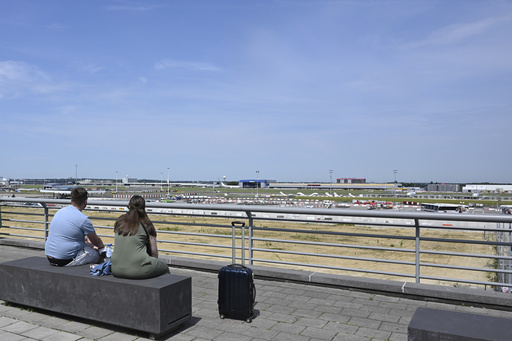Air travelers encountered significant challenges on Friday due to a widespread technology outage, leading to stranded crowds at airports in Europe and the United States. Major airlines such as American Airlines, Delta Air Lines, United Airlines, Spirit Airlines, and Allegiant Air experienced flight groundings as various systems, including passenger check-in and aircraft weight calculations, were impacted by the outage.
The disruption, attributed to a software update from cybersecurity firm CrowdStrike to Microsoft computers of corporate clients like airlines, resulted in more than 2,200 U.S. flights being canceled and over 6,000 delayed by midday on the East Coast. Worldwide, more than 3,500 flights were canceled, leaving hundreds of thousands of passengers stranded.
According to CrowdStrike, the issue was identified and was in the process of being resolved, but the repercussions were expected to linger for several days. The peak summer vacation season compounded the situation as many flights were already at full capacity, leaving airlines with limited flexibility to accommodate passengers from canceled flights.
Passengers were advised to take proactive measures to rebook their flights, such as contacting their airline directly via phone, checking for flight updates on the airline’s app, and exploring the possibility of alternative flights from nearby airports. Some airlines not affected by the outage, like Southwest and Alaska Airlines, also faced seat availability challenges due to the surge in summer travel.
As the disruptions could extend into the weekend, travelers were urged to monitor their flight status regularly, arrive at airports well in advance, and explore refund options offered by airlines due to the cancellations. While regulations in Europe entitle passengers to compensation for flight disruptions under EU261, such provisions are absent in U.S. law, and airlines establish their own policies for reimbursing stranded travelers for expenses like accommodations and meals.
